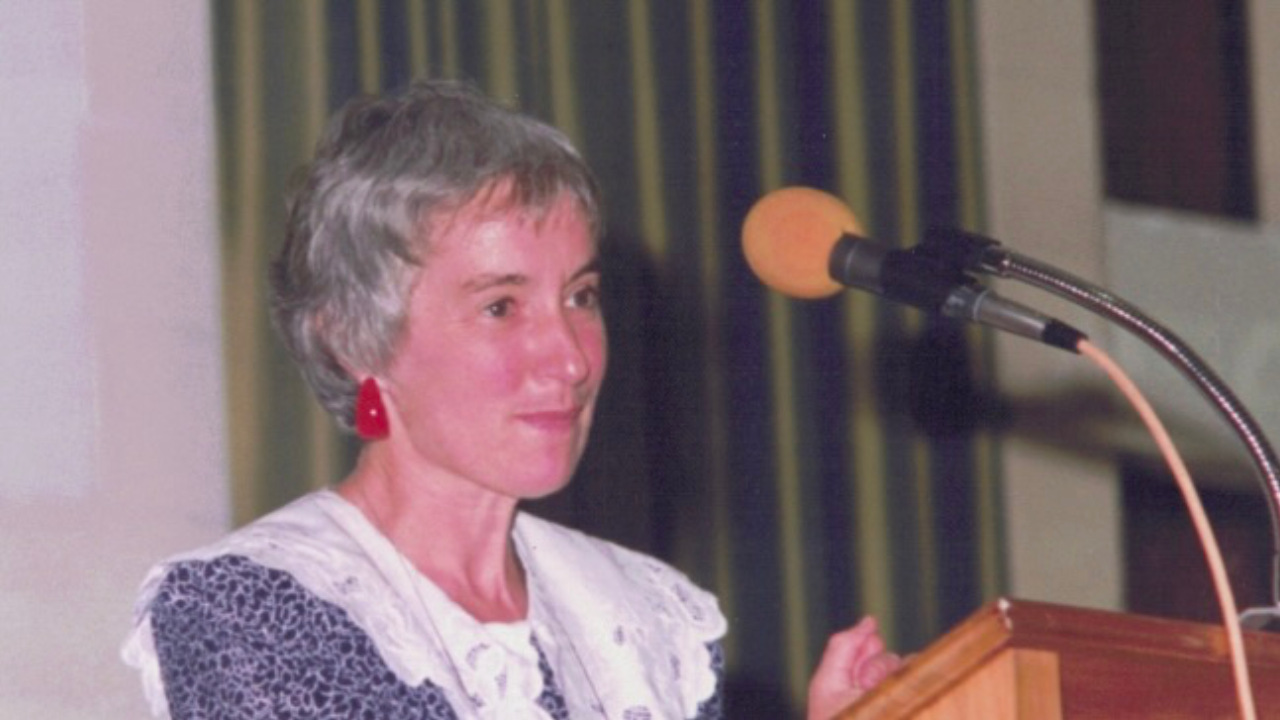
Rev Marjory Gibson was one of the first women who served in various ministry roles: assistant pastor for Whanganui Central Baptist 1981-86, dean of MISSIONZ Training School 1987-1995, associate pastor in the Auckland Baptist Tabernacle 1993-2008.
Born in 1942, Marjory Gibson grew up in Dunedin along with older sister Allison and younger brothers Graeme and Bruce. In 1946, when she was only four years old and there were next to no Baptist women preachers, the minister at her North East Valley Baptist Church, Rev Bycroft, made a surprising comment to her parents: ‘We’ll make a minister of her!’ While it may have been a joke, it proved prophetic.
Marjory felt sure she belonged to God from early childhood, but reached a new level when she was 12. One Sunday night she felt as if God had singled her out at an evangelistic service, challenging her to make a personal commitment to him. Later a distinctive prayer/hymn helped form who she was and she determined to belong to God, whatever the cost: ‘My goal is God Himself, not joy, nor peace… ’Tis His to lead me there—not mine, but His.’
Teaching
After this, Marjory headed back to be near her newly widowed mother in Dunedin, accepting work as speech therapist for the Taieri Plain. At the same time, she taught Bible Class at NE Valley Baptist and, in this teaching felt she had landed on her feet. She loved being part of a teaching team. Today we would call it Youth Pastor but then there was no such label.
Someone asked Marjory to stand to be a deacon at NE Valley Baptist, but she was not elected. One of the men in leadership said, ‘Marjory please don’t take this personally. It’s just because you’re a woman!’ But it did matter! However, things were changing. By the end of the next year people recognised that Marjory was doing the work of a deacon anyway and she was voted into the deacon’s role. Her grateful aside to the story is, ‘Thank you, NE Valley Baptist! I loved being a deacon and loved thinking creatively with others about the kinds of things that needed to be happening in church life.’
Marjory also gained experience helping to plan and run Easter camps in the Otago area. When Baptist Youth Movement (BYM) started, she and Rev Jim Skett were the first presidents.
Questions
But Marjory now noticed she felt unsettled. Despite enjoying her work as a speech therapist and being good at it, she felt it was not her lifegoal. By 1972, when she was 30, she was thinking, ‘If I had been a man, I would have been a church minister. Why did God allow me to be a woman? I should have been a bloke!’ She puzzled over that, thinking also, ‘It’s not my goal to be a minister’s wife either. I can imagine being part of a pastoral team, but nobody has pastoral teams.’ She concluded she was mistaken and gave up thinking about it. (There were many pastoral teams three or four decades later, but none when Marjory was younger.)
But now the opinions of some other people became helpful to Marjory. While she was not greatly confident in herself, others started to recognise her abilities and encourage her to look wider. For five years she worked in a leadership role as Coordinator of the Otago Preschool Project, part of the Dunedin Multidisciplinary Child Development Study. She found this role stimulating; and upon completion there was a well-defined next step to which she also felt directed by God: the role of District Speech Therapist in Whanganui. At this time, she was also longing to communicate about God with people who cared nothing about Jesus, but she felt hugely inadequate and very ignorant of how to do this.
Whanganui
So Marjory arrived in Whanganui. On her first Sunday at Central Baptist Church it was announced that the minister, Rev Bruce Patrick, would be leading a series of witnessing skill classes on Sunday mornings before worship. She laughed and said, ‘God, you don’t waste time, do you!’ Marjory learned communication skills in those classes and soon found God using her, through these new skills, in the most natural ways. Soon she was teaching the skills to others!
‘What better task could there be!’ Marjory told herself. She was delighted to equip ordinary people to do evangelism and wanted to do it more and more. It became one of her great joys. It is not surprising that in 1981 the church called her to be their pastoral assistant.
That caused an unexpected commotion from an unexpected quarter. The senior education inspector raced round to see her. He thumped on a desk, shouting, ‘Woman you’re out of your mind! And that church is out of its mind… You could have a brilliant career in the Education Department!’ The admonition slid off Marjory like water off the proverbial duck’s back. She would simply say later, ‘The church job fits like a glove. I am so happy that I feel guilty at being paid to do it.’ Her speaking prospered. People invited her to lead seminars and retreats, and messages started formulating in her head.
Church Growth School
Baptists had been running a national Church Growth School, but it was currently in abeyance for lack of a Dean. Marjory wondered, ‘Why doesn’t one of the best men in the country offer for it? I haven’t got the brains to do this myself.’ Imagine her shock when she felt God told her to go and do it. She said ‘No.’ She shouted ‘No.’ But once again she gave in and the Church Growth School was run by Marjory in Auckland for three years, and then in Wellington (1990), in Christchurch (1991), in Papakura (1992), and the Auckland Baptist Tabernacle from 1993. Branch schools were also established in Tauranga and Tikipunga, and Marjory had an oversight role for these.
Marjory was extraordinarily well accepted by churches all around New Zealand, and knew that God enabled this to happen. She developed a gift of encouraging people to trust that God would use them. As commentator Elaine Bolitho mentions, ‘Initial fears that a woman dean would turn out wimpish church planters proved groundless. Eighty-nine graduates emerged from the practical hands-on course’… She had ‘broken ground for other Baptist women, and for men too.’[1]
It was not all plain-sailing. Marjory admitted, ‘I occasionally met people who were uncomfortable about a woman teaching. A few men revealed their struggles, saying things like: “Marjory, I don’t agree at all with what you are doing, but I totally agree with the way you’re doing it!”[2] Sometimes she invited naysayers to express their views and responded with a list of women God had used down the centuries, and then pointed to further scriptures.[3] Marjory never did have to fight for her right to lead, though she realised her story was uncommon. She explains this as, ‘God can make a way. At times God uses a person’s skills to make a way for them to serve him in ministry, but I’m very aware this does not happen for everybody.’
She felt team ministry was her favourite milieu and said she would not have accepted a sole-charge ministry. Indeed, Marjory considers that church leadership is better when men and women are working together in complementary ways, and that such team work is beneficial for the church as well as for the pastoral team. And on the matter of glass ceilings, Marjory found it was set at different levels in different Baptist churches. Her own bottom-line was, ‘Do these church leaders treat me as their equal?’
[1] Bolitho, Elaine, Meet the Baptists
[2] NZ Baptist 1993
[3] ibid
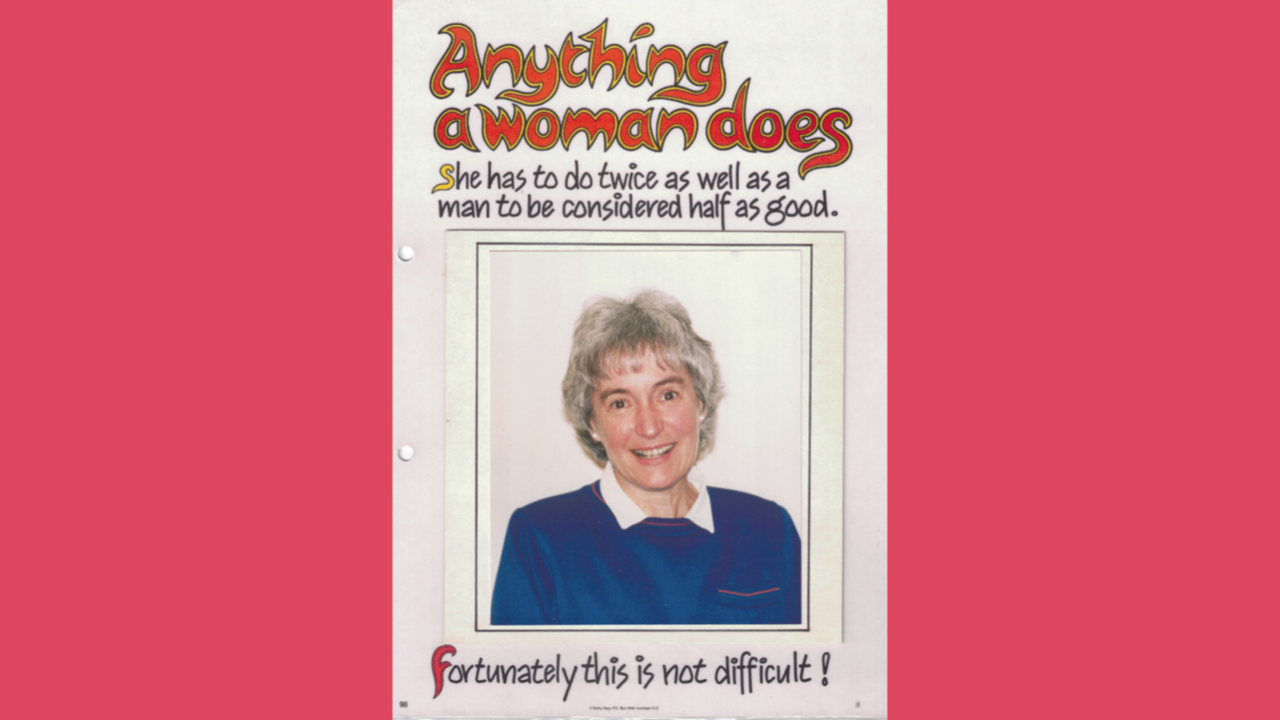
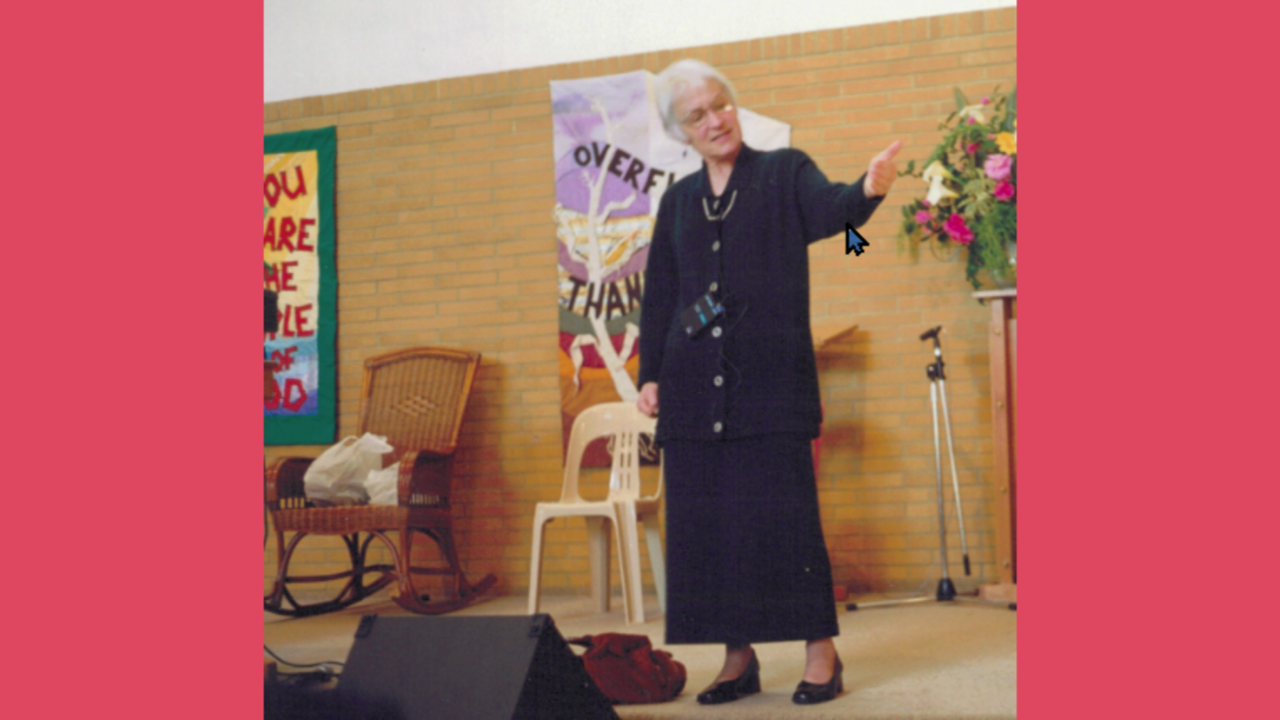
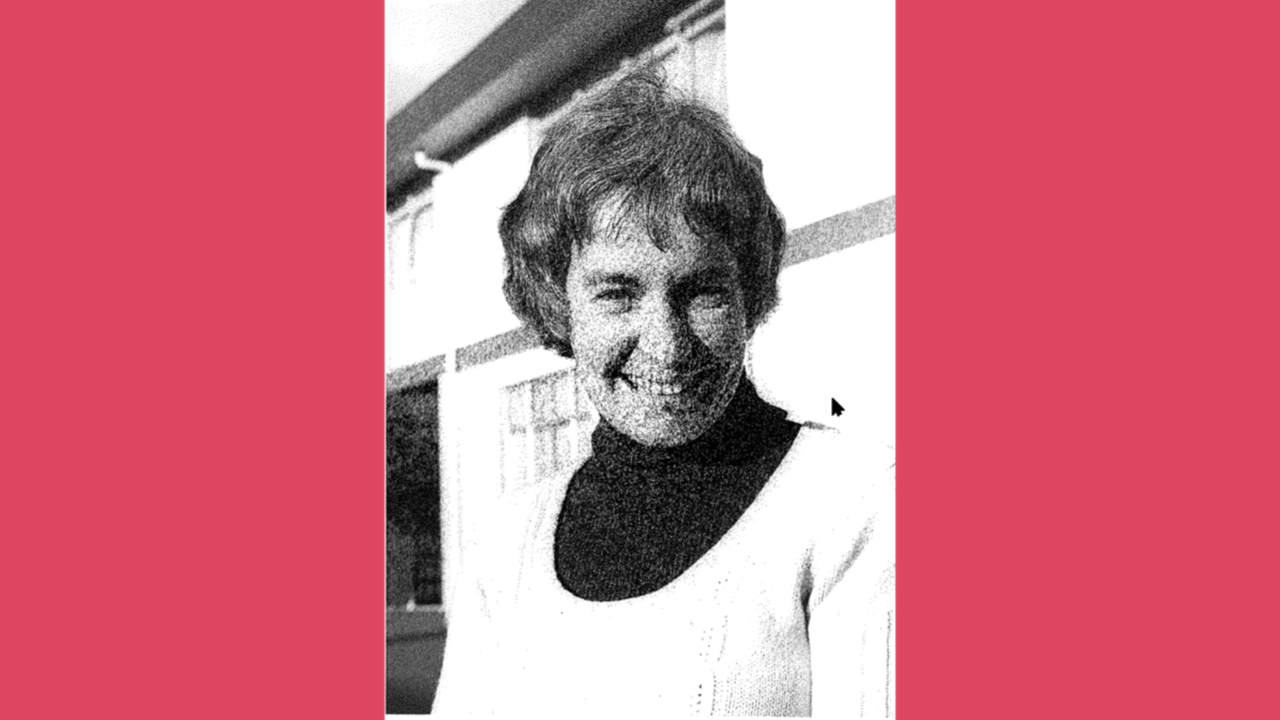
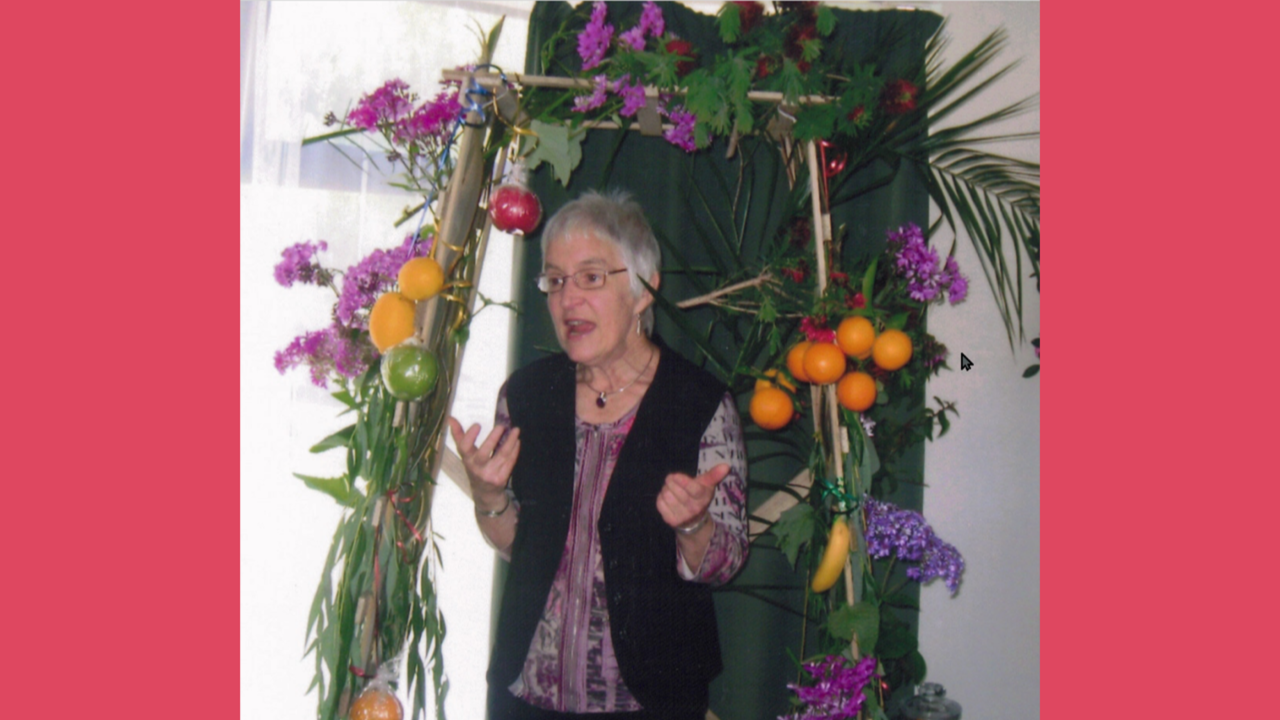
Auckland Tabernacle
In 1992 Marjory was surprised by a dream that she was in Central Auckland and calling it her parish. Interestingly, about this time the Baptist Tabernacle leaders were in discussion with Bruce Patrick, considering a pastoral team rather than a sole minister. They finally called Bruce, his wife Jinny, and Marjory as a pastoral team to start in 1993. (Marjory also continued the Church Growth work part-time for two more years.)
Again it was a ‘high-fit’ job for Marjory. ‘I loved the privilege and challenge of ministry at the Tab. People seem to appreciate that God gave me gifts of creativity along with enthusiasm and encouragement.’ But it was not without its challenges. Marjory felt that worship and prayer seemed to well up in her but it was always a different story with messages. ‘Hatching sermons is hard, hard work,’ she said. ‘I get depressed, and feel inadequate and insecure, but once it has ‘come’ I am able to present my material with freedom, joy, and a light touch. Earlier on, if God had let me choose, I’d have married and had at least six children. But he called me instead into ministry as a single, to equip the saints to become all they should be, and to reach unbelievers.’[1]Marjory had again fallen on her feet and loved her work. She felt it was summed up with Isaiah 48:17 ‘I am the Lord your God who teaches you what is best for you, who directs you in the way that you should go.’ ‘Yes!’ she exclaimed, ‘That’s me!’
Marjory’s role on the pastoral team at Baptist Tabernacle lasted until her retirement in November 2008, when she was just on 67 years of age.
She had been voted to the role of Vice President of the Baptist Union in 2005 and President in 2006.[2] Marjory was by then well-known as a result of her work up and down New Zealand, for she had led at camps and retreats, trained people in many churches, given of her warmth and realism and skills in evangelism. Her friends called her ‘contagiously enthusiastic’.
She told successive Baptist assemblies, ‘God wants us to be alert to every opportunity he gives us, and to find the courage to say or do whatever he wants said or done.’ She said, ‘Doing this enables me to live with an amazing sense of adventure as I never know when next God will let me help in what he’s doing in someone’s life. I’m unnerved by how many people sense the nudge from God but are afraid to act. We can know God, be loved by him, worship him, communicate with him, and serve him. Let’s do this with exuberance and joy!’
On retiring from the Baptist Tabernacle, Marjory took several months off, refusing to consider offers of further work, saying, ‘I need to discover who I am when I’m not defined by work.’
Later years
Eleven months later she accepted a part-time role at another Baptist church, focussed in her areas of gifting. She says now, ‘This became one of the most baffling experiences of my life. The hoped-for team work never developed and I felt stifled. This certainly deepened my understanding of the difficulties many women face when they feel called and gifted by God but find that other leaders are unable to surrender control.’
This experience helped her to understand how some women find themselves constrained by the environment in which they long to serve and feel frustrated and disappointed by this. For those women, her advice now is this: ‘We don’t need a role. God can make us effective anyway. If we are open to his leading, he will bring people across our path, and we will find ourselves involved in things that he himself is doing. Learning to follow Jesus in this way may seem rather precarious, but it can become deeply satisfying.” Marjory did come to terms with the difficult environment and worked as well as she could there.
Then came another total surprise. At age 70 she married widower Len McSaveney, whose wife Marilyn had been a very good friend for years. What says she now? Amazed and contented, Marjory says, ‘This has opened up a wonderful new season of discoveries, learning and growth.’
[1] NZ Baptist 1999
[2] NZ Baptist December 2005 and December 2006
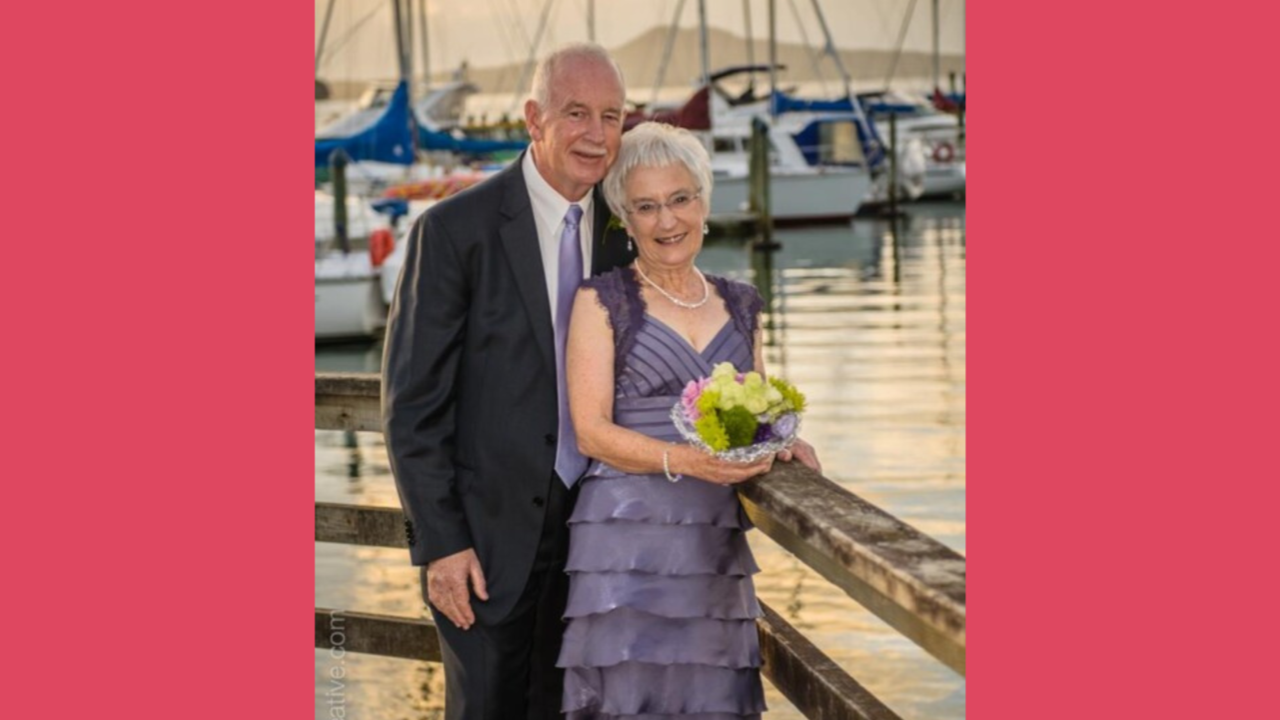
Sources:
New Zealand Baptist August 1993, 1999, December 2005, December 2006
Bolitho, Elaine, Meet the Baptists: post-war personalities and perspectives,
Christian Research Association of New Zealand, Auckland, 1993
Beulah Wood, Personal communication with Marjory, written and verbal, 2021.


